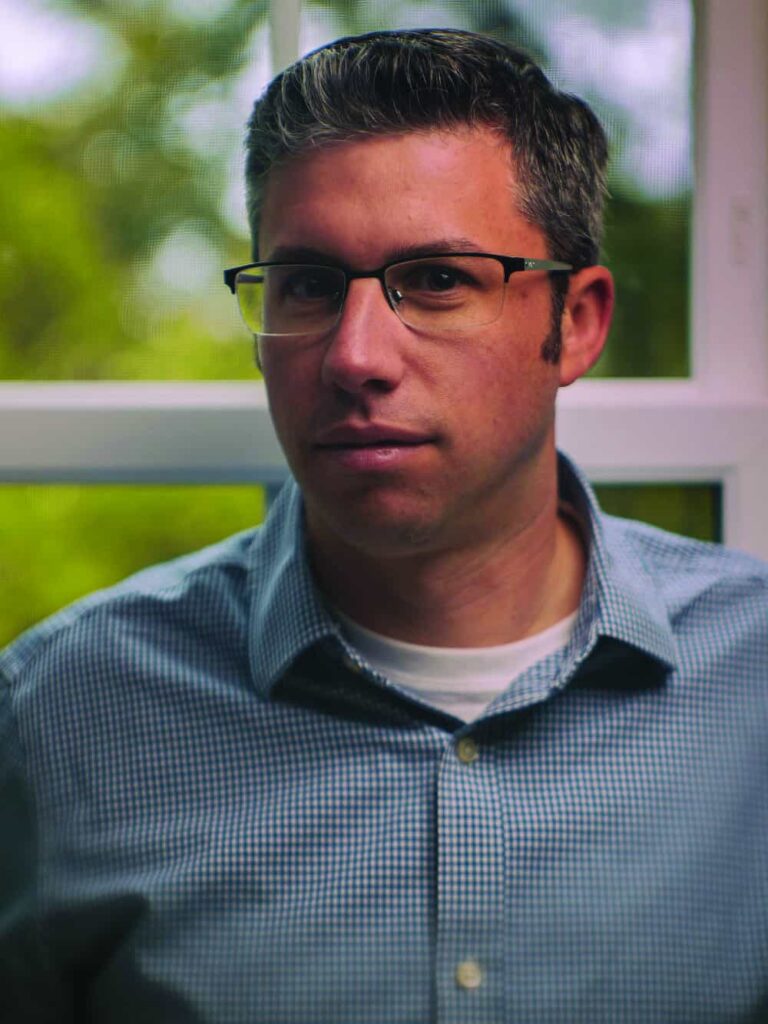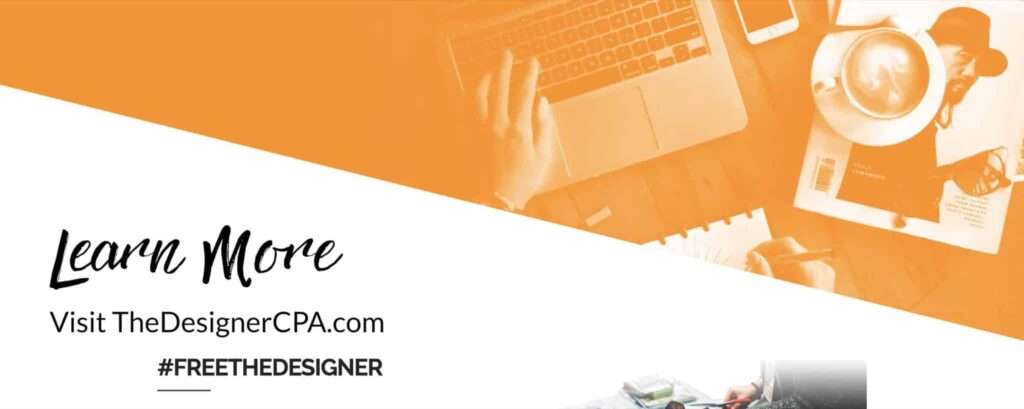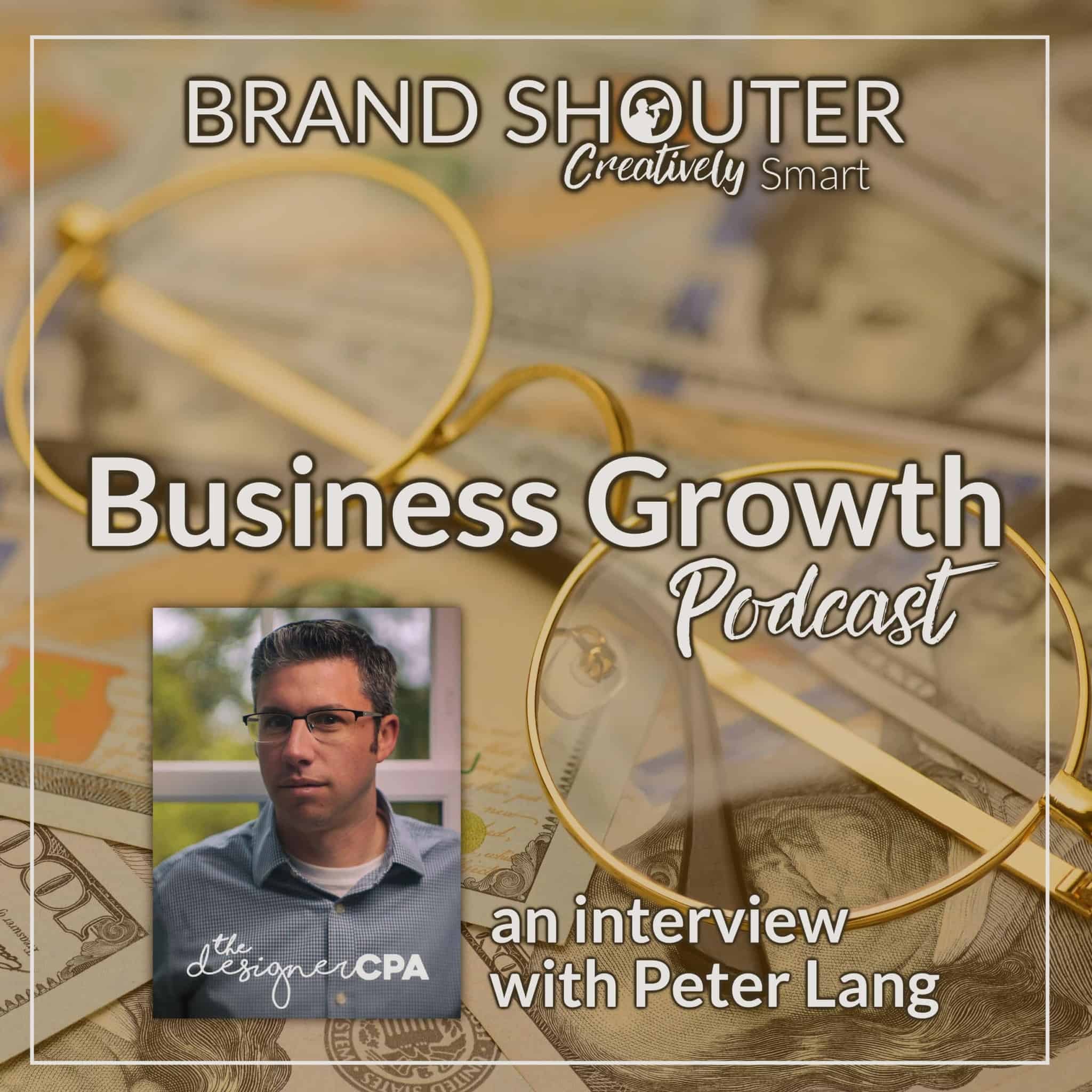I recently had the pleasure of interviewing Peter Lang, owner of The Designer CPA. Peter started rising quickly through the ranks at the CPA firm he started with, until one day, he was written up for being “too helpful.” This led him to realize that corporate life wasn’t for him. Instead, he chose to pursue the path of being a CPA that focuses on creatives and interior designers. It was a pleasure to chat with him and I sincerely hope you are able to gain some key insights through the podcast episode and this transcription.
Peter Lang’s Bio:

Peter moved to Boston in 2004 to pursue his Master in Taxation degree. It was there that he began working at a large cutthroat accounting firm, where he was written up for the first and only time in his professional life for “helping people too much.” He then moved on to a small firm where he quickly became bored with the life of a traditional CPA and noticed that interior designers were consistently underserved by standard CPAs, so he decided to pursue his dream of running his own firm and settling down with his family and business in Rhode Island.
Peter Lang, CPA, is an accountant who specializes in the unique accounting challenges faced by artistic professionals. Designers and other artistic professionals may find that ordinary CPAs are simply unequipped for their needs, but with 16 years of tax and accounting experience under his belt, Peter is a proven expert in helping interior designers do their taxes and all the other financial duties that art school didn’t teach them.
The Interview
Dan: I’m on the phone with Peter Lang, The Designer CPA. Peter, how you doing?
Peter: I’m good. How are you? Thanks for having me on.
Dan: Thanks for joining me on the Business Growth Podcast. I’m doing great! It’s a little chilly here, but the sun’s out – so it’s kind of hot & cold.
Peter: Same thing over here on the East Coast as well.
Dan: You guys had a pretty rough winter, right?
Peter: Actually, we’ve had a pretty quiet winter so far. This weekend coming up is going to be one of those classic… we’re not really sure what’s going to happen. It’s either going to be raining or Snowmageddon 2019. We’ve learned to kind of wait and see on that kind of stuff.
Dan: I hope it doesn’t get too bad for you.
Peter: I’m good with snow.
Dan: So just for the people listening here, can you give me a little background on the Designer CPA? Specifically: what does your business do, how long has it been around, and other background details you’d like to share.
Peter: Sure. We’re currently a CPA firm that provides accounting, tax and part-time CFO services to business owners in the design industry. I’ve been in business since 2012, but it was probably about two years ago that I decided to start the process of exclusively working in the design industry niche. I had design clients before creating this niche so that’s how I made that decision.
Dan: I was reading up on you and The Designer CPA before the interview. I spent time going through your website and some information that you provided me. One of the interesting and funny things I found was that you were written up for “helping people too much.” That seems like a corporate America problem.
Peter: Yeah, talk about the moment I knew I needed to work on my own and have my own business…
I had never really gotten into serious trouble my whole life. It was like a classic boring “accountant” life. I had just gotten promoted at work and gotten a big raise. I was feeling pretty good that I was being appreciated. Then two or three months after being promoted, I was told that I was being written up for my performance. I was like, “Wow! What’d I do wrong?” No one could really give me a concrete answer. They just said, “Well, you need to just improve your performance.”
I kind of pushed on it because I was looking to probably leave anyway. I made them give me an answer: “Yeah,” they said “you help people too much.” I had just been promoted to a senior level and in my head I thought, “Okay, that means I need to assist the staff under me.” But apparently, in their minds, I was talking too much and helping too much. That’s what I mean. They said, “You’ll make it if you get back to your cubicle and put your head down. Get your work done and stop talking.” It was then that I formulated a plan to move on from that job because it was like bizarro world.
Dan: It’s those kinds of moments that drive a lot of people into doing their own thing and starting their own business. That sounds a bit ridiculous to me. It’s good people like you exist who do “too much” because that’s what makes for success: going over and beyond.
So Peter, can you explain why the type of business entity you choose as an entrepreneur even matters? Why choose an LLC versus a C-corp versus anything else?
Peter: A lot of people, regardless of what industry they’re in, will start out as a sole proprietor because it’s the most common choice when starting a business. It’s the easiest to set up, the least amount of expenses, and when you’re starting as a business owner it is the simplest way to start.
I’ve always been focused on the taxes. I’ve always been a tax guy and so a lot of times I’ll tell clients, “You know, that’s great to start out.” But one thing we tell everyone is: you have your regular personal income tax and then you have an additional self-employment tax. So for the sake of argument, let’s just say that in the United States, the self-employment tax is an additional 15% that the business owners have to worry about on their profit for the year.
Once they start rocking-and-rolling, they’re doing well, growing and they get to a profit of let’s say like 40/50/60 thousand dollars a year – That’s when we start to educate them on the benefits of changing from a sole proprietor to whatever makes sense for them. There are benefits and then there are other things like rules you have to follow when you switch. You want to make sure that you follow them.
It depends on the person. I always say, “A good accountant will hopefully contact you and communicate with you throughout the year.” If a switch should be made that’ll be a benefit to you, that’s cool.
Dan: Do you recommend starting as a sole proprietor for most people? For example, Wapiti is a single-member LLC.
Peter: A lot of people will start out as an LLC which is more on the legal side. If you are starting out as a sole proprietor, you are the only owner. A lot of people will set up that LLC to protect themselves for legal purposes. That’s perfectly fine and you can change at any time and that’s the beauty of it. A single member LLC is a great way to start, and then after three or six months if you’re making money and don’t have a lot of expenses you can look at a switch. It’s not like you’re locked in and you picked the wrong answer.
Dan: You focus on working with interior designers. How is accounting for an interior designer different than accounting for another business such as Wapiti?
Peter: Interior designers tend to be unique. They’ll often come up with a contract and a proposal for the entire project and present that to a customer. Sometimes they can sometimes get a check for half or the entire project up front. All of a sudden they have all that cash. They need to make sure that they’re allocating that money to the proper place. They also have to buy goods and have a resale certificate for the project. Often they are looking at marking up stuff and have to worry about sales tax – which can be filed monthly or quarterly.
If you’re an interior designer, you don’t want to spend all that money and then find out three months later that you have a sales tax liability. Some people, when they start out think, “Oh, this is great! I have all this money!” and then they spend it on various things. Then it’s time to buy the stuff for the project and pay people to do the work for the project.
So there’s a lot of cash management. Of course, all sorts of industries have to deal with cash management. Interior designers are in a fairly unique position that they’re getting all this cash up front. They need to make sure that they’re tracking it and not spending too much of it or they could be in trouble.
Dan: That makes sense. Let’s move back to your company. What is the mission of The Designer CPA? What are your goals? Do you have any outreach or secondary purpose beyond making money?
Peter: Our mission/tagline is: Providing Financial Freedom So You Can Create. We came up with that because a lot of times our design clients say things like, “I’m really good at creating things and I really hate finances. If you could take care of just about anything when it comes to accounting and taxes, that would make my life a lot easier.” Our mission is to do just that and to be a trusted advisor to people in the design industry. We understand because we work with people all the time, every day. We are able to understand the difficulties in the industry.
That’s our tagline and our mission. We basically provide tax and accounting services. A lot of people have bookkeepers that we work with as well. I’ve always been in public accounting. I’ve always enjoyed different projects, different clients, and dealing with different people.
My outreach is that I’m able to help as many people as possible. I only went into private accounting about 10 years ago because I was sick of the tax season hours. I lasted for about two months in corporate accounting because it was the same. I was working for the same company with the same journal entry every day with the same report, and I was bored.
I missed talking to multiple people a day and other exciting, different things and challenges that different business owners deal with. At the end of the day, I really enjoy helping as many people as possible.
Dan: You mentioned kind of how creative people generally are (and this is a gross generalization) – creative people without the analytical side. It’s nice for designers/creatives to have someone who understands what they do and what they have to go through – but with the “left-brained” approach to taking care of their finances.
Peter: Absolutely. I love numbers and finances but if you told me that I had to redesign my home or paint a quality picture, I’d start sweating and freaking out.
Dan: I’m not too far from you. I’m fairly analytical myself, but I have a little bit of a creative knack. I get the whole idea of cold sweats when it comes to that creative stuff.
Peter, for you personally, what are your goals? How do you see your life progressing from this point through your work with The Designer CPA?
Peter: I’ve been in accounting for as long as I can remember and it was kind of boring. The Designer CPA is a virtual, cloud-based firm that works with people all over the country. Advancements of technology allows me to be a virtual CPA. It allows me to be anywhere with my laptop and still be able to do work. Through this, my goal is to continue to be able to do work remotely. It’s getting to the point where it’s easier and easier to work wherever.
If I wanted to travel to a different place for a while, I would be able to do that and still be able to work with my clients and give value to them. I mean, the sky’s the limit and we don’t even know what kind of technology is going to be out even in a year or two from now. It’s kind of exciting to be able to talk to people and work with people all over the country.
Dan: I will sometimes find a place away from the office to work. Here in the Pacific Northwest, where Wapiti is located, we have some amazingly scenic areas. As long as I can get cell reception (for internet), I can work out of my car. I’ve been known to do that once in a while as an escape and a way to reset my mind a little bit. Being able to go pretty much anywhere is pretty appealing.
Peter: Even like five or ten years ago we couldn’t do that and you were literally stuck at your desk in that same office with the piles of paper everywhere. That image of being a “traditional accountant” for the rest of my life kind of freaked me out. I’m a numbers geek and I love doing it, but technology has given us a hope that we can go wherever we want and still be able to get the work done.
Dan: One of the things that I aim to accomplish with every interview is to provide something specific and actionable for people reading or listening. In your career as a CPA and maybe even more specifically with The Designer CPA, what is a specific challenge you’ve had to overcome? Did you succeed at it fail at it?
Peter: The Designer CPA is a service-oriented business. The biggest challenge I have is being able to find good help so that I don’t have to do all of the work on my own. I think that’s a challenge that most business owners are facing. It’s a work in progress for me.
That’s something that I’ve really tried to concentrate on. How do I make processes that are consistent. How can I find people that will show up for work whether it’s virtually or in the office. How can I help them know what they’re going to do and enable them to do a good job for the client so that I don’t have to do everything and worry about working every day for the rest of my life.
Dan: Definitely. I can commiserate with that so much. The old adage “Good help is hard to find” isn’t really the issue as much as realizing that you need to enable others to take jobs from you. People don’t always do things the way you do and that can be ok. It’s also realizing that your way isn’t necessarily the best way; others may have a good or better way of doing it as well. It’s also that you want your personality to shine in everything because it is your company being represented.
Peter: And to be honest, sometimes it’s hard to let that stuff go when you’ve been doing it for so long. Often you resort to the thought, “I’ll just do it because I know that I know how to do it perfectly right.”
Dan: It’s exactly true. Maybe it’s related to the last question, but if you had one piece of advice to offer other business owners from your experiences, what would it be?
Peter: Well, I’m an accountant. So I would say if we’re going to talk about the accounting side, I encounter a lot of new business owners that say they cannot afford an accountant. They want to do things on their own using a spreadsheet. I would say that if you’re gonna invest in certain things to start a business you want, there’s non-negotiable team members that you need and an accountant is definitely one of those members.
At least invest in a cloud-based accounting software that connects to your business checking account and credit card. Make sure you at least do that because, if you wait to do it down the road, then you’re already dealing with a mess. On top of that, I always tell my clients you didn’t really get into business to do accounting or else you’d be an accountant.
That’s the number one advice that I can give people: is just make sure that you find yourself a good accountant that you trust, can communicate with, and that’s also doing the work and checking in with you so that you’re free to do whatever it is you decide to get into business to do.
Dan: That’s good advice – I like that! OK, time to pitch your business!
Peter: We are a CPA firm called The Designer CPA. Our niche is business owners in the design industry. If you find yourself in the design industry and you’re looking for a good accountant, we’ll take good care of you.
For us, it’s mandatory that we meet with our clients quarterly so that we’re all on the same page and we can give you advice throughout the year. You can hop on over to our website: thedesignercpa.com and check out what we’re all about. We have monthly subscription plans based on the different needs that a client has.
We’re always looking for new clients to try to help, and we’re an all virtual firm. We communicate using Skype or Zoom with clients. We’d love to help as many people as we can.
Dan: Thank you so much, Peter. I really appreciate the time for this interview!
Peter: Thanks for having me!









